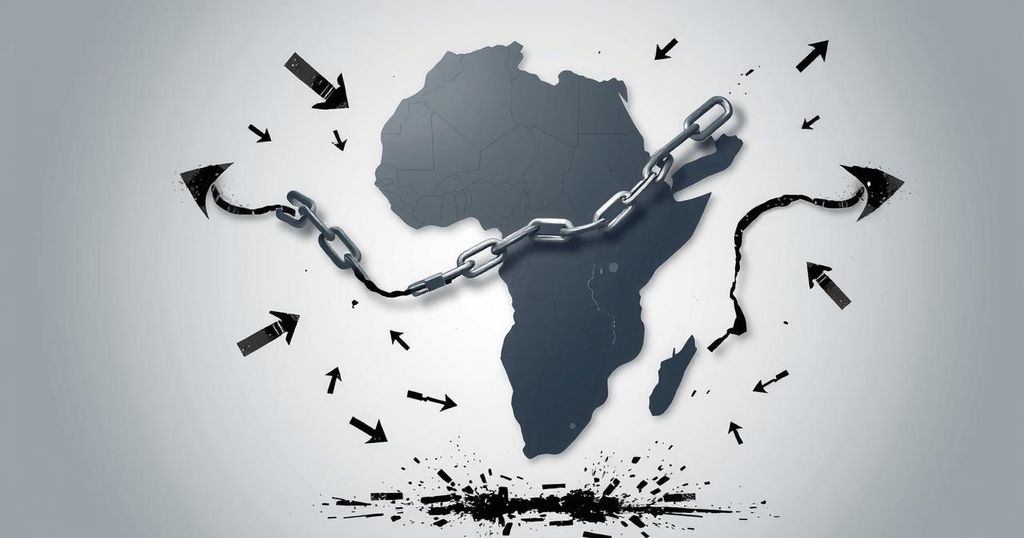Kenyan Politicians Consider AU Exit After Odinga’s Electoral Defeat

The defeat of Raila Odinga in the African Union Commission chairperson election has led to discussions among his supporters about Kenya’s potential exit from the AU. Mahmoud Youssouf of Djibouti won the election, prompting calls from Kenyan politicians to reconsider the nation’s contributions and roles within the AU and EAC. Politicians express dissatisfaction with the AU’s structure and its impact on member states’ interests.
Allies of former Prime Minister Raila Odinga have voiced concerns regarding Kenya’s position within the African Union (AU) following his defeat in the election for the chairperson of the African Union Commission (AUC). The election, conducted during the 38th Ordinary Summit in Addis Ababa, Ethiopia, saw Djibouti’s Foreign Affairs Minister, Mahmoud Youssouf, secure victory after seven rounds of voting, amassing 33 votes from 49 heads of state, thus obtaining the necessary two-thirds majority.
Odinga faced daunting competition from both Youssouf and Richard Randriamandrato, a former Foreign Affairs Minister from Madagascar. This electoral outcome has elicited strong reactions among Odinga’s supporters, prompting discussions about Kenya’s future role in the AU. Homa Bay Town MP Peter Kaluma has notably indicated a desire to advocate for the nation’s exit from the AU and the East African Community (EAC).
The EAC consists of eight member states, including Kenya, Uganda, and Tanzania. Additionally, Alego Usonga MP Samuel Atandi has recommended that Kenya reassess its financial contributions to the AU, suggesting a reduction or even a potential withdrawal. Such sentiments reflect an underlying dissatisfaction concerning the AU’s structure and its capacity to represent the interests of its member states.
Senator Ledama Olekina of Narok has also contributed to the discourse by highlighting President William Ruto’s backing of Odinga’s candidacy. He has questioned whether the AU should be divided into two distinct entities, indicating a need for significant structural reevaluation. The election process for the AUC chair is exclusive to member states and designed to be free from military influence, rotating among the AU’s five regions.
The election outcomes for the chairperson of the African Union Commission have sparked significant discussions in Kenya regarding the nation’s role within the AU. Following Raila Odinga’s defeat, various political voices have called for a reevaluation of Kenya’s engagement with the AU and have even contemplated a possible withdrawal. This reaction underscores the prevailing concerns over the effectiveness of the AU in addressing the interests of its member states.
Original Source: mwakilishi.com







